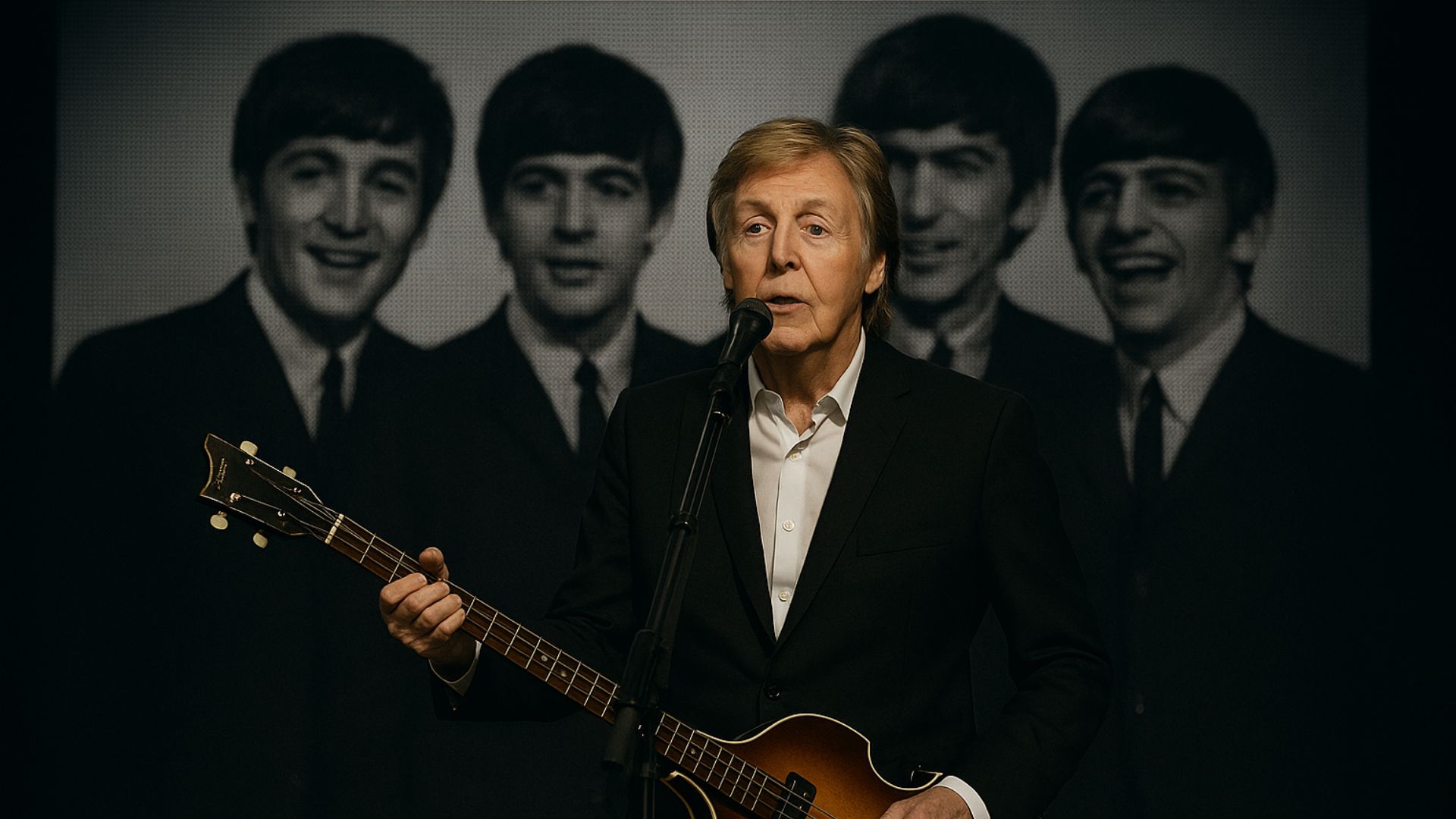
When The Beatles released “Love Me Do” on October 5, 1962, few could have guessed that this unassuming little song — built on three simple chords and a shy plea for love — would mark the dawn of a musical revolution. Recorded at EMI’s Abbey Road Studios with Paul McCartney, John Lennon, George Harrison, and Ringo Starr (then newly arrived behind the drums), it was their very first single. Yet within its simplicity lay the spark that would change popular music forever.
The song opens with Lennon’s harmonica — bright, bluesy, and instantly recognizable. It was a sound unlike anything else on British radio at the time, a blend of skiffle, rock ’n’ roll, and something distinctly Beatles: youthful confidence mixed with vulnerability. Then come the voices — Lennon and McCartney harmonizing in call and response, that now-legendary chemistry already effortless. “Love, love me do / You know I love you…” It’s almost childlike in its directness, but that’s where its magic lies. The Beatles weren’t trying to impress — they were trying to connect.
At its heart, “Love Me Do” is a song about sincerity. The lyrics are as plain as they come, but they carry a warmth that felt real, unpolished, and honest. In an era filled with polished pop crooners and carefully orchestrated productions, this was raw emotion — two young men from Liverpool singing about love like they actually meant it. McCartney’s lead vocal wavers slightly on the high notes, and rather than hiding it, the imperfection became part of the charm. It was human, and that made all the difference.
Behind the scenes, the recording process revealed just how uncertain — and yet determined — the band was. Producer George Martin, though not yet convinced of their songwriting strength, recognized something in their energy. He insisted on re-recording the song several times with different drummers: first with Pete Best, then Ringo Starr, and finally with session drummer Andy White on the version that appeared on the album Please Please Me. Despite the changes, that unmistakable harmonica hook and those harmonies made the record impossible to forget.
When “Love Me Do” first hit the charts, it peaked modestly at No. 17 in the UK — a respectable debut, but not yet the explosion that would come with “Please Please Me” and “She Loves You.” Still, history would prove it was the true beginning. This was The Beatles finding their sound, their identity, their confidence. The world hadn’t fallen in love with them yet — but this was the song that introduced them to the idea.
There’s something endearingly innocent about “Love Me Do.” It’s not layered in metaphor or ambition; it’s simply about love, sung by four young men who believed in what they were saying. That directness — that belief — became the foundation of everything that followed. From this first recording would grow the boundless creativity of Rubber Soul, the experimentation of Sgt. Pepper’s, and the emotional depth of Abbey Road.
More than sixty years later, when the harmonica begins to play, it still feels like the start of a journey — one that belongs to all of us now. Because “Love Me Do” isn’t just The Beatles’ first single; it’s a reminder of where every dream begins: with a voice, a heartbeat, and a simple plea —
Love, love me do.
You know I love you.